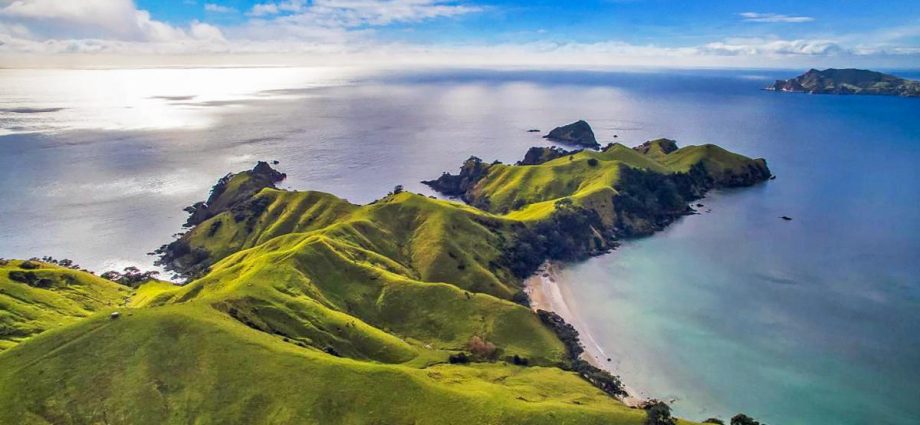PHOTO: Great Barrier Island. MOA TOURS
Residents of Great Barrier Island are finding themselves residing in unconventional accommodations such as caravans, tents, and shipping containers, attributing their situation to affluent holidaymakers snatching up vacation homes, thus crowding out options for locals in the housing market.
With approximately half of the island’s properties designated for holiday homes or tourism lodgings, there’s a scarcity of residences available for permanent residents to purchase or rent.
Among those affected are pensioners Alison Cookson and Anupa Nesbitt, who now call caravans their homes on Great Barrier Island. Cookson describes her living conditions as subpar, highlighting issues like leaks and cramped quarters, expressing disbelief at the stark reality of their situation.

The surge in housing prices on the island during the Covid-19 pandemic, as tourists sought domestic destinations, exacerbated the situation. The sudden influx of buyers with substantial funds led to skyrocketing property values, making even modest dwellings unaffordable for locals.
Cookson’s predicament also impacts her ability to host her six children, who live off the island, as there’s simply no suitable accommodation available for them.
Property listings on platforms like Trademe reveal a wide range of prices, from under $600,000 to nearly $15 million, with the majority exceeding $1 million. Rental options are scarce, with none found during a Checkpoint search.
Syd Davies, chairperson of the Aotea Family Support Group Charitable Trust, notes the varied housing situations in his bay, including makeshift dwellings like containers and tents. He emphasizes the financial challenge for both indigenous and non-indigenous people who wish to return to the island later in life.
Despite the hurdles, there’s a strong desire among both mana whenua and others to reconnect with the island. However, the financial barriers remain significant.
Makere Jenner, leading the Tu Mai Taonga project focused on environmental conservation, highlights the difficulty her team faces in securing housing for employees. Many eager workers struggle to find suitable accommodations, resorting to unconventional living arrangements to stay on the island and contribute to conservation efforts.
SOURCE: RNZ














